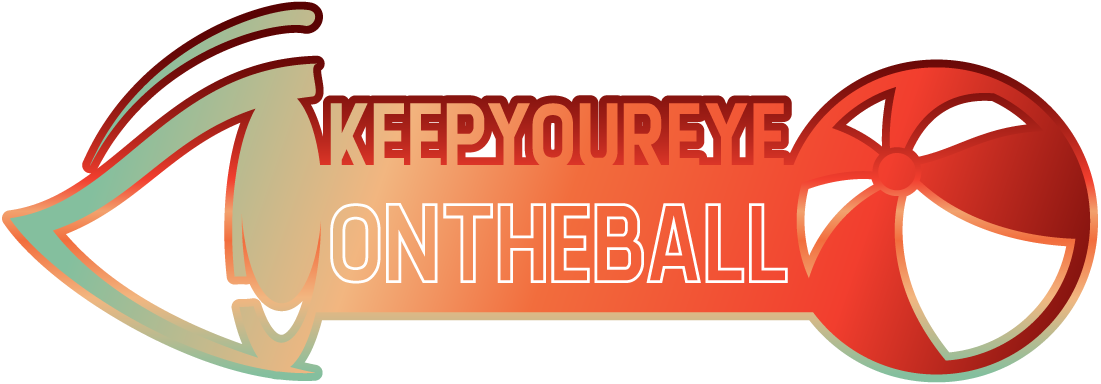A well-structured sports nutrition plan is essential for optimizing athletic performance, enabling athletes to recover faster, perform better, and reduce the risk of injury. By understanding the correct nutrition for sports, athletes can fuel their bodies with the necessary macronutrients, vitamins, and minerals to support their unique physiological needs. Whether you’re a seasoned athlete or just starting out, a comprehensive guide to sports nutrition can help you make informed decisions about your diet, leading to improved overall health, increased energy levels, and enhanced competitive edge.
Understanding the Importance of Proper Nutrition for Athletes
A well-planned diet is crucial for athletes to optimize their performance. At Keep Your Eye on the Ball, we believe that a balanced intake of essential nutrients can help support muscle growth, recovery, and endurance.
What is the Correct Nutrition for Sports?
According to our research, a sports-specific nutrition plan should include a variety of complex carbohydrates, lean proteins, and healthy fats to provide energy for high-intensity activities.
Key Components of a Sports-Specific Nutrition Plan
At Keep Your Eye on the Ball, we recommend consuming a mix of carbohydrates and protein within 30-60 minutes after exercise to promote muscle recovery.
Personalized Nutrition Plans for Enhanced Athletic Performance
Recent studies suggest that personalized nutrition plans can significantly impact athletic performance. For example, a 2019 study published in the Journal of the International Society of Sports Nutrition found that a tailored macronutrient approach improved cycling performance in trained athletes (1).
Key Takeaways for Athletes
- Consume a variety of complex carbohydrates, lean proteins, and healthy fats to provide energy for high-intensity activities.
- Aim for 1.6-2.2 grams of protein per kilogram of body weight daily.
- Stay hydrated by drinking water before, during, and after exercise to prevent dehydration and heat-related illnesses.
Understanding the Basics of Sport Nutrition
To optimize sports nutrition, it’s essential to understand the basics of sport nutrition principles.
What are the Basics of Sport Nutrition?
The basics of sport nutrition involve understanding how to fuel the body for optimal performance and recovery.
A well-planned sports nutrition strategy can help athletes optimize their performance and reduce the risk of injury or illness.
Keep Your Eye on the Ball offers expert advice on training and nutrition to help athletes achieve peak performance and personal growth.
Key Principles for Optimal Nutrition
Some key principles for optimal nutrition include:
- Carbohydrates for energy production
- Protein for muscle repair and growth
- Healthy fats for hormone regulation and absorption of vitamins
A balanced diet that includes a mix of complex carbohydrates, lean protein, and healthy fats can improve endurance performance by up to 12%
Factors Influencing Individual Nutritional Needs
Individual nutritional needs can vary depending on factors such as age, sex, weight, height, and activity level.
For example, athletes who engage in high-intensity interval training may require more protein and carbohydrates to support muscle repair and energy production.
How to Assess Personal Nutritional Requirements
To assess personal nutritional requirements, athletes can consult with a registered dietitian or healthcare professional.
They can also use online tools and calculators to determine their daily calorie and macronutrient needs.
Importance of Whole Foods and Nutrient-Dense Diets
Aim to consume whole, nutrient-dense foods such as fruits, vegetables, whole grains, lean proteins, and healthy fats.
Avoid processed and packaged foods that are high in added sugars, salt, and unhealthy fats.
Sample Meal Planning Tips
Here are some sample meal planning tips:
- Plan meals around seasonal and locally sourced ingredients
- Incorporate a variety of colors on your plate to ensure a range of nutrients
- Include a source of protein, healthy fat, and complex carbohydrates at each meal
Customized Nutrition Plans for Different Sports Disciplines
Different sports disciplines have unique nutritional requirements.
For example, endurance athletes may require more carbohydrates and electrolytes to support long-duration activities.
Strength and power athletes may require more protein and creatine to support muscle growth and strength gains.
Understanding the Importance of Proper Nutrition for Athletes
To establish optimal nutritional guidelines for athletes, several factors must be considered.
Key Considerations for Athletes
At Keep Your Eye on the Ball, we believe that proper nutrition plays a critical role in supporting athletic performance and overall health.
Learn More About Our Approach to Sports Nutrition
Caloric Intake and Macronutrient Balance
Athletes engaging in high-intensity activities may require significantly more calories than those with sedentary lifestyles.
Research suggests that athletes necessitate 40–70 calories per 1 kg of body weight per day, whereas the average less active individual requires 25–35 calories per 1 kg of body weight daily.
This increased caloric demand supports muscle growth, repair, and energy production during intense exercise periods.
A well-balanced diet comprising carbohydrates, proteins, and fats is essential for athletes.
Carbohydrates serve as the primary source of energy, while protein supports muscle repair and growth.
Fat provides sustained energy and aids in the absorption of fat-soluble vitamins.
Read More About ACSM’s Sports Medicine: A Comprehensive Review
Importance of Hydration and Electrolyte Balance
Adequate hydration is crucial for athletes, particularly during and after intense exercise.
Water intake can help prevent dehydration, reduce muscle cramping, and support overall physical performance.
Electrolytes, such as sodium, potassium, and magnesium, play a vital role in maintaining proper fluid balance and nerve function.
Athletes often experience electrolyte imbalances due to excessive sweating, which can lead to decreased performance and increased risk of injury.
Learn More About Dietary Reference Intakes for Water, Potassium, Sodium, Chloride, and Sulfate
A Well-Balanced Sports Nutrition Plan for Beginners
A well-balanced sports nutrition plan for beginners involves incorporating a variety of nutrient-dense foods from all food groups. Focusing on whole, unprocessed foods can help ensure adequate intake of essential vitamins, minerals, and phytonutrients.
Key Components of a Beginner’s Sports Nutrition Plan
- Sports Nutrition Guidelines: Choosing whole grains over refined grains is crucial for a beginner’s sports nutrition plan. Aim for at least half of daily grain intake to be whole. Examples include brown rice, quinoa, whole wheat bread, and whole grain pasta.
- Nutrition for Endurance Sports: Include a variety of lean protein sources, such as poultry, fish and seafood, legumes, nuts and seeds, meat alternatives, and fresh fruits and vegetables.
- Healthy Fats for Performance: Incorporate healthy fats, such as avocado, nuts, and seeds, to support heart health and satisfy hunger.
Importance of Balanced Nutrition for Athletic Performance
Recent studies suggest that a balanced diet that includes a variety of whole foods can help support athletic performance and overall health. For example, a study published in the Journal of the International Society of Sports Nutrition found that athletes who consumed a meal rich in complex carbohydrates and protein before exercise experienced improved endurance and reduced muscle damage (1).
Staying Hydrated for Optimal Performance
In addition to focusing on whole foods, it’s also essential to stay hydrated by drinking plenty of water throughout the day. Aim to drink at least eight glasses of water per day, and adjust according to individual needs.
Creating a Balanced Meal Plan
A well-balanced sports nutrition plan requires careful consideration of macronutrient balance for endurance and strength training. Carbohydrates provide energy for endurance activities, while protein supports muscle repair and growth. Healthy fats, such as avocado, nuts, and seeds, support heart health and satisfy hunger.
Sample Meal Plan for Beginners
A sample meal plan for beginners might include:
- Breakfast: Overnight oats with fruit and nuts
- Lunch: Grilled chicken breast with quinoa and steamed vegetables
- Dinner: Baked salmon with sweet potato and green beans
Conclusion
A well-balanced sports nutrition plan is essential for optimal athletic performance and overall health. By incorporating a variety of nutrient-dense foods from all food groups, staying hydrated, and carefully considering macronutrient balance, beginners can set themselves up for success in their athletic endeavors.
The Three Keys to Sport Nutrition
The three keys to sport nutrition can be broken down into the following essential components:
- Fuelling: Providing the body with the necessary macronutrients, such as carbohydrates, protein, and healthy fats, to enhance endurance, strength, and mental clarity during physical activity.
- Hydration: Adequate hydration is crucial for athletes to prevent dehydration and fatigue, while optimizing muscle performance.
- Recovery: Adequate recovery time is essential for allowing the body to repair and adapt to the demands of exercise.
Balancing Energy Intake with Energy Expenditure
A well-balanced diet that includes complex carbohydrates, lean proteins, and healthy fats can help support optimal athletic performance. Research has shown that consuming a meal rich in carbohydrates 1-3 hours before exercise can improve endurance performance (ACSMAmerican College of Sports Medicine). Additionally, incorporating protein into meals can help promote muscle repair and growth after exercise (Journal of Strength and Conditioning Research.
Managing Hydration and Electrolytes
Adequate hydration is crucial for athletes to prevent dehydration and fatigue, while optimizing muscle performance. Water makes up approximately 60% of an adult’s body weight, and even mild dehydration can impair athletic performance (Institute of Medicine). Drinking water regularly throughout the day, especially during and after exercise, can help maintain proper hydration levels. Furthermore, electrolyte-rich beverages can help replenish lost salts and minerals, reducing the risk of dehydration (Nutrition Reviews).
Creating a Balanced Meal Plan
Adequate recovery time is essential for allowing the body to repair and adapt to the demands of exercise. This involves consuming a balanced meal or snack that includes protein, complex carbohydrates, and healthy fats within 30-60 minutes after exercise. Additionally, getting adequate rest and sleep is critical for allowing the body to recover from the physical stress of exercise. Research has shown that inadequate sleep can negatively impact athletic performance, leading to decreased speed, power, and overall performance (Journal of Sports Sciences).
Understanding the Importance of Proper Nutrition for Athletes
The correct nutrition for sports plays a vital role in optimizing athletic performance and reducing the risk of injury. At Keep Your Eye on the Ball, we believe that a well-balanced diet is essential for achieving peak physical condition.
Key Principles for Optimal Nutrition
According to experts at the American College of Sports Medicine, a balanced meal consisting of complex carbohydrates, moderate protein, and healthy fats can enhance athletic performance and reduce the risk of injury (ACSMAuthoritative Resource). By focusing on whole, nutrient-dense foods, athletes can support muscle function, energy production, and overall health.
Balancing Energy Intake with Energy Expenditure
For athletes looking to optimize their performance, it’s essential to strike a balance between energy intake and expenditure. Consuming too few calories can lead to fatigue, decreased motivation, and reduced athletic performance. On the other hand, consuming excessive calories can result in weight gain, decreased endurance, and increased risk of injury.
Importance of Caloric Balance for Optimal Performance
A study published in the Journal of Strength and Conditioning Research found that consuming a meal rich in carbohydrates and protein 2-3 hours prior to exercise improved cycling performance in trained athletes (Journal of Strength and Conditioning Research). By understanding the importance of caloric balance, athletes can optimize their energy intake and expenditure to achieve peak performance.
What Are the 3 Keys to Sport Nutrition?
The pursuit of optimal athletic performance requires a deep understanding of the complex interplay between nutrition, energy expenditure, and hydration. At Keep Your Eye on the Ball, our mission is to empower athletes and sports enthusiasts with the knowledge and tools needed to unlock their full potential.
Balancing Energy Intake with Energy Expenditure
One of the most critical components of sport nutrition is achieving a delicate balance between energy intake and energy expenditure. When an athlete consumes more calories than they burn, their body stores excess energy as glycogen, which can lead to improved endurance performance. Conversely, inadequate energy intake can result in decreased performance and increased fatigue.
A well-balanced diet that includes complex carbohydrates, lean proteins, and healthy fats can help athletes optimize their energy intake. For example, consuming a balanced meal with whole grains, lean chicken, and steamed vegetables can provide the necessary energy for a high-intensity workout.
Managing Hydration and Electrolytes
Proper hydration is essential for optimal athletic performance, as even mild dehydration can impair cognitive function, reduce endurance, and increase the risk of injury. Adequate electrolyte balance is equally crucial, as electrolytes play a vital role in regulating fluid balance and nerve function.
Adequate hydration can be achieved through drinking plenty of water, consuming electrolyte-rich foods such as bananas and avocados, and incorporating sports drinks during intense or prolonged exercise. For instance, the National Academy of Sciences recommends that athletes consume 17-20 ounces of water 2-3 hours before exercise and 8-10 ounces every 10-15 minutes thereafter.
Example: Customized Nutrition Plans for Different Sports Disciplines
For endurance athletes, a customized nutrition plan may include a higher carbohydrate-to-protein ratio to optimize energy production. For example, a study published in the Journal of the International Society of Sports Nutrition found that endurance athletes who consumed a diet rich in complex carbohydrates and moderate amounts of protein experienced improved endurance performance compared to those who followed a low-carbohydrate diet.
In contrast, strength-trained athletes require a higher protein intake to support muscle growth and repair. A study published in the Journal of Strength and Conditioning Research found that resistance-trained athletes who consumed a diet rich in protein and moderate amounts of carbohydrates experienced improved muscle mass and strength compared to those who followed a low-protein diet.



0 Comments